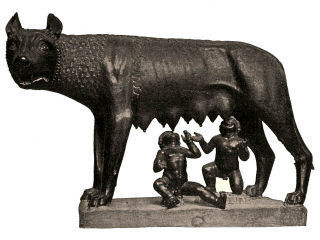The art of smart criticism
Over the last few weeks I've had plenty of opportunity to reflect on how principled disagreement can get morphed into crude abuse. That is to say, when I say something about migration with which some people I disagree, quite a few people on social media decide to say that I am "stupid" or "evil" or a "disgrace to the academy" or whatever. Hang on, I think. We disagree... that doesn't mean that I am nasty/ignorant (nor you), it means we disagree.
And I'm not the only recipient of this stuff. Maybe I have missed the irony here (dont think so), but there was a blog by John Rentoul recently which criticised the London Review of Books' stance on Israel. Fair enough, it's hard to see a single good line on this one. But the idea that the paper's stance made the LRB editor Mary-Kay Wilmers "evil" (as Rentoul put it it) seems bonkers to me. Since when has expressing or supporting a different view meant you are "evil"? Wrong maybe, or controversial or whatever. but "evil"?(And since when has "Mary-Kay Wilmers" been an anagram of "Cruella de Vill"?)
One of the main arts of criticism surely rests in part on a sense of humour... and on sticking the knife in in a way that the victim would see the point, and possibly grin. Unless you make an impact on the person criticised, what's the point?
This happened to me recently.
There was a very nice review of Radio 4's In Our Time in the Guardian a few days ago, by David Hepworth -- it was hugely admirative. Though it also admitted that there were occasions on which IOT didn't quite come off. One of these occasions, he said,was the introduction to the recent Romulus and Remus programme -- started off by me. Now I had been quite pleased by how I had explained the complexities of this wonderfully complicated myth. And I had a number of pats on the back on the very same subject. Well done for the entrancing account, they said. But I guess I did see what Hepworth meant when he wrote, on listening to this exegesis: "I was reminded of the first time somebody tried to explain to me how an endowment mortgage worked."
Fair cop I thought. But maybe the complexity is exactly the point of this kind of story. (I mean, if you're not baffled, you haven't got the point.)
Though I have to say that I had the last laugh on this one. In the Guardian, Hepworth attributed this opaque bit of mythography to Mary WARNOCK. I have to say I'm flattered..(who wouldnt be flattereed to be taken for M Warnock) but, accuracy....? Isn't that what IOT stands for!
You can listen here.
Mary Beard's Blog
- Mary Beard's profile
- 4112 followers




